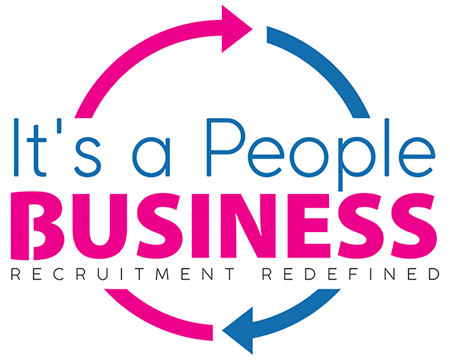
In today's highly competitive job market, offering good compensation packages to employees is more important than ever before. Companies that offer competitive compensation can attract and retain top talent, which in turn can help drive business growth and success. However, determining what constitutes Competitive compensation is not always straightforward. Business owners must consider a range of factors, including industry standards, location, and the skills and experience of their workforce. They must also balance the need to offer competitive compensation with the need to manage expenses and ensure profitability.
In this blog post, we will provide strategies for business owners looking to develop a competitive compensation strategy that meets the needs of their company and their employees. We will explore the latest trends in compensation, including salary benchmarks, benefits packages, and incentives. We will also provide practical advice on how to evaluate your current compensation package and make adjustments to ensure that it remains competitive. By following these strategies, business owners can ensure that they are attracting and retaining the best talent in their industry, while also maintaining a budget that works for their bottom line.
One of the most effective strategies for business owners when it comes to offering competitive compensation packages is to research Pay rates in the industry. Knowing what other companies are paying for the same position can help business owners determine a fair and reasonable starting salary for their own team members. Additionally, it is important for business owners to be aware of cost-of-living increases in their region and to adjust salaries accordingly. Giving employees regular raises in line with the market will help them maintain their value in the industry and make them less likely to look for employment elsewhere.
Read More: Mastering Talent Acquisition: Strategies and Best Practices for Recruiting Top Candidates
1. Conduct market research to determine what the competition is offering.
1. Conduct market research to determine what the competition is offering.

As a business owner, offering competitive compensation is crucial in attracting and retaining top talent in your industry. To ensure your compensation package is competitive, it is essential to conduct market research to determine what your competition is offering. This research should include analysing job postings and salary ranges for similar positions in your industry and region. Additionally, consider participating in salary surveys or working with a compensation consultant to gain access to data on compensation trends and benchmarks for your industry. By conducting thorough market research, you can gain a better understanding of what your competitors are offering and ensure your offer is attractive to candidates in your industry.
2. Consider the level of experience and education necessary for the job.
2. Consider the level of experience and education necessary for the job.

When offering competitive compensation, it's crucial to consider the level of experience and education required for the job. Skilled and experienced professionals will typically command higher salaries, while entry-level positions may require less experience and education. Therefore, it's essential to conduct market research to determine the prevailing salaries offered for similar positions in your industry, and to align your compensation package accordingly. Additionally, you'll need to consider the cost of living in your area, as well as the availability of talent with the required skills and experience. By offering salaries that are commensurate with the level of expertise required for the role, you can attract and retain top talent, which can positively impact your company's growth and profitability.
Read More: The Future of Work: Predictions for Online Recruitment in the Next Decade3. Develop a total compensation package, including benefits and perks.
3. Develop a total compensation package, including benefits and perks.

Developing a total compensation package that includes benefits and perks is an essential strategy for business owners to offer competitive compensation to their employees. Competitive compensation is crucial to attracting and retaining top talent, enhancing job satisfaction, and increasing employee loyalty. To develop a successful compensation package, companies should consider factors such as market benchmarks, employee demographics, and company culture. Offering benefits such as health insurance, retirement plans, and paid time off are standard offerings in compensation packages. In addition, companies can differentiate themselves by providing unique perks such as flexible work arrangements, wellness programs, and professional development opportunities. A comprehensive compensation package can set a business apart from its competitors and contribute to a positive company culture.
4. Be transparent about compensation during the hiring process.
4. Be transparent about compensation during the hiring process.
Read More: Mastering the Main Stages of Any Recruitment Discussion: A Practical Guide for Employers
One key strategy for offering competitive compensation as a business owner is to be transparent about compensation during the hiring process. This means being upfront with potential candidates about the pay range for the position and any additional benefits or perks that may come with the job. Candidates are more likely to be attracted to a company that offers transparency in its compensation structure, as it demonstrates a level of trust and respect between the employer and employee. By being transparent, you can also reduce the likelihood of misunderstandings or conflicts arising in the future regarding pay and benefits. Overall, offering competitive compensation through transparency can help attract and retain top talent and contribute to a more positive and productive work environment.
5. Regularly review and adjust compensation to stay competitive.
5. Regularly review and adjust compensation to stay competitive.

One of the keys to attracting and retaining top talent is offering competitive compensation packages. One strategy for achieving this is regularly reviewing and adjusting compensation to stay competitive in the job market. Business owners should stay informed about industry standards and trends in compensation, and regularly benchmark their salaries and benefits against comparable organisations. When necessary, adjustments should be made to ensure that the compensation package offered is in line with market rates, and attractive enough to entice and retain high-quality employees. Proactively reviewing and adjusting compensation can demonstrate a commitment to supporting and valuing employees, and is an essential part of any comprehensive human resources strategy.
Conclusion
To conclude, offering competitive compensation is a key strategy for business owners to attract and retain the best talent. Employers must first conduct market research to understand what their competitors are offering and determine a budget for compensation. From there, they can create a comprehensive compensation package that includes not only salary, but also benefits and incentives. Business owners should also communicate their compensation strategy clearly to their employees and consistently evaluate and adjust it to remain competitive. By implementing these strategies, business owners can ensure that their company is an attractive destination for top talent in their industry. Contact It's a People.Business today to learn how we can help your organisation achieve these goals.
Read More: The Benefits of Working with a Flat Fee Recruiter
